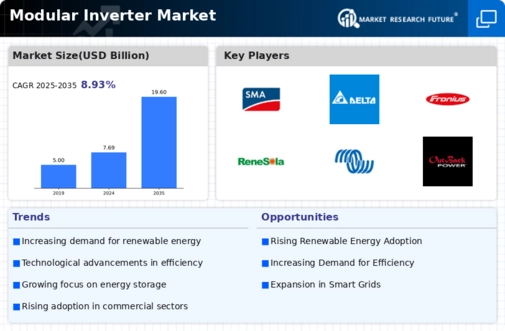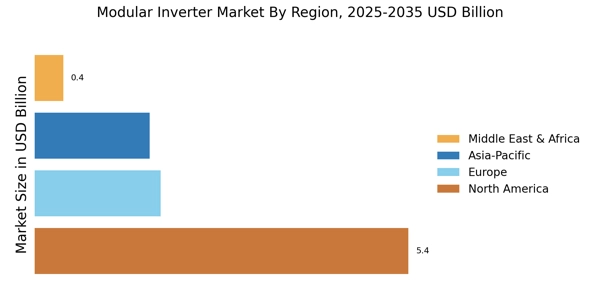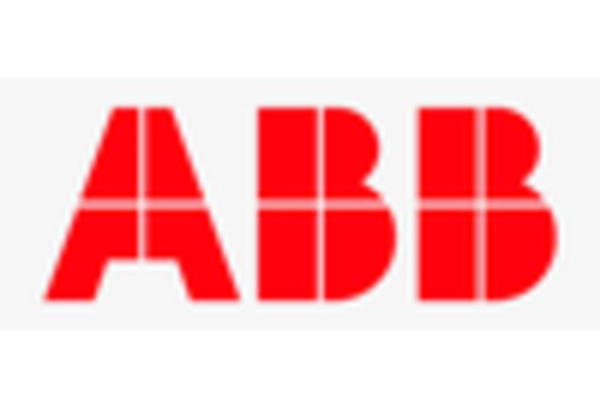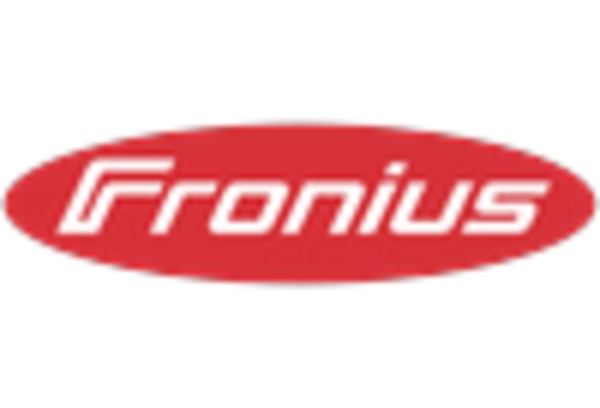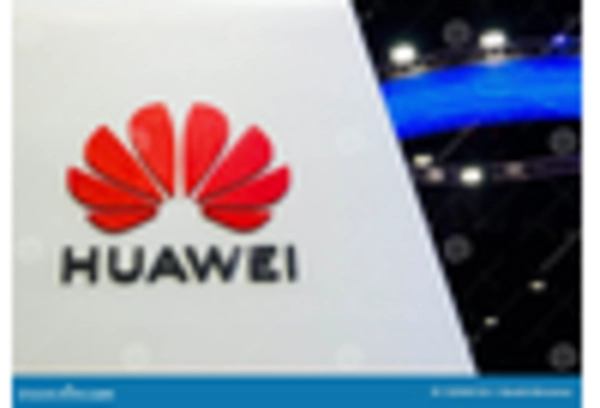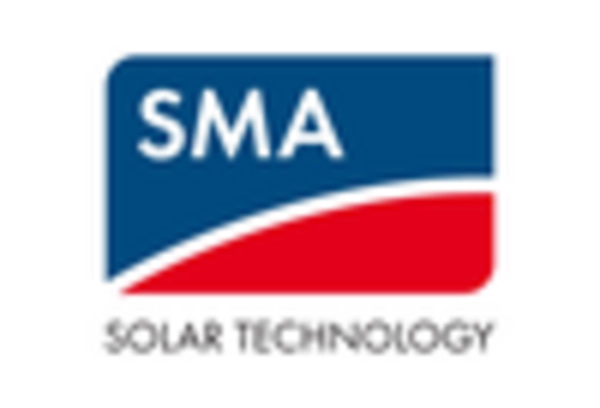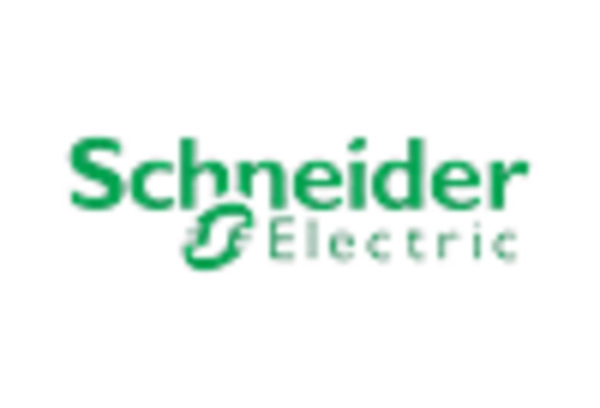Rising Demand for Renewable Energy
The increasing emphasis on renewable energy sources is a primary driver for the Modular Inverter Market. As nations strive to meet sustainability goals, the demand for solar and wind energy systems has surged. Modular inverters play a crucial role in optimizing energy conversion from these sources, thereby enhancing overall efficiency. According to recent data, the renewable energy sector is projected to grow at a compound annual growth rate of over 8% in the coming years. This growth is likely to propel the adoption of modular inverters, as they offer flexibility and scalability, making them suitable for various applications. The Modular Inverter Market is thus positioned to benefit significantly from this trend, as more consumers and businesses seek to invest in renewable energy solutions.
Increased Focus on Energy Efficiency
Energy efficiency has become a focal point for both consumers and industries, driving the Modular Inverter Market forward. As energy costs continue to rise, there is a growing need for solutions that minimize energy wastage. Modular inverters are designed to optimize energy usage, allowing for better performance in energy conversion processes. This is particularly relevant in sectors such as manufacturing and commercial buildings, where energy consumption is substantial. Reports indicate that energy-efficient technologies can reduce energy consumption by up to 30%, which is a compelling incentive for businesses to adopt modular inverter systems. Consequently, the Modular Inverter Market is likely to see increased investments as organizations prioritize energy efficiency in their operations.
Growing Adoption of Electric Vehicles
The rise in electric vehicle (EV) adoption is emerging as a significant driver for the Modular Inverter Market. As the automotive sector transitions towards electrification, the demand for efficient power conversion systems is increasing. Modular inverters are essential for managing the energy flow in EVs, ensuring optimal performance and battery management. The EV market is projected to grow exponentially, with estimates suggesting that electric vehicles could account for over 30% of total vehicle sales by 2030. This shift is likely to create substantial opportunities for the Modular Inverter Market, as manufacturers seek to develop inverters that meet the specific needs of electric vehicles, thereby enhancing their market presence.
Technological Innovations in Inverter Design
Technological advancements in inverter design are significantly influencing the Modular Inverter Market. Innovations such as improved power electronics, enhanced control algorithms, and advanced cooling systems are making modular inverters more efficient and reliable. These developments not only enhance performance but also reduce the overall footprint of inverter systems, making them more appealing for various applications. The market for modular inverters is expected to expand as manufacturers continue to innovate and improve their product offerings. Furthermore, the integration of smart technologies, such as IoT capabilities, is likely to enhance the functionality of modular inverters, allowing for better monitoring and management of energy systems. This trend suggests a promising future for the Modular Inverter Market as it adapts to evolving technological landscapes.
Supportive Government Policies and Incentives
Government policies and incentives aimed at promoting clean energy technologies are playing a pivotal role in shaping the Modular Inverter Market. Many countries are implementing favorable regulations and financial incentives to encourage the adoption of renewable energy systems, including solar and wind power. These initiatives often include tax credits, rebates, and grants for businesses and consumers investing in modular inverter systems. As a result, the market is witnessing increased investments and installations of modular inverters, driven by both public and private sector initiatives. The supportive regulatory environment is likely to sustain growth in the Modular Inverter Market, as stakeholders capitalize on these incentives to enhance their energy infrastructure.


